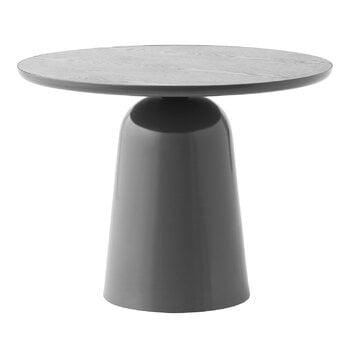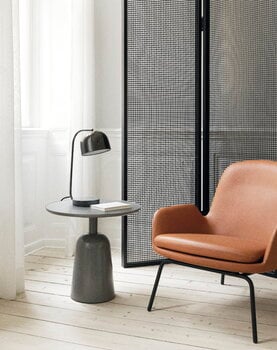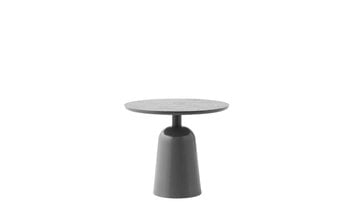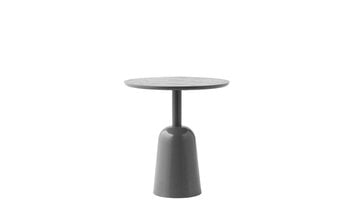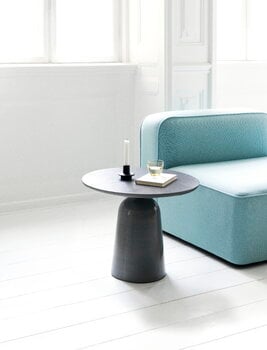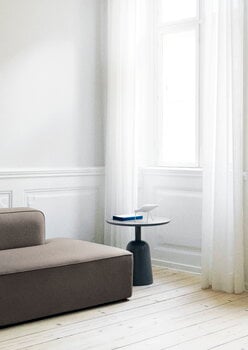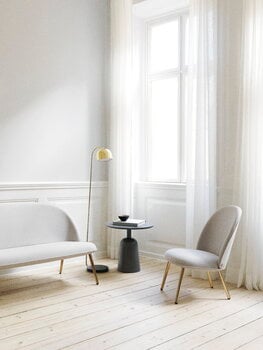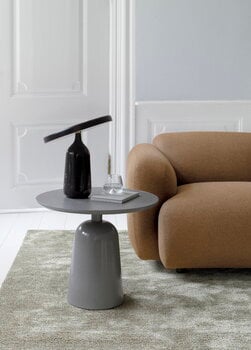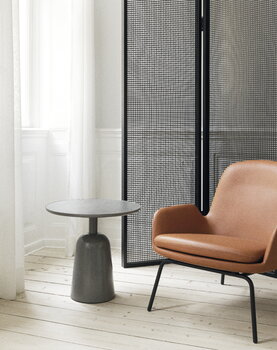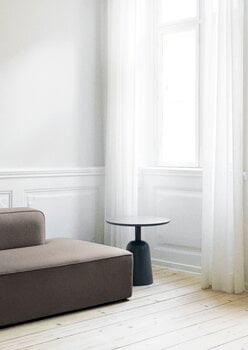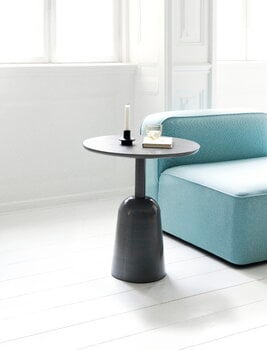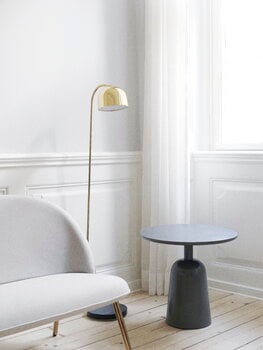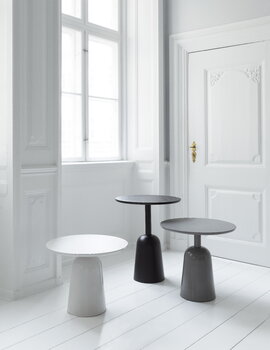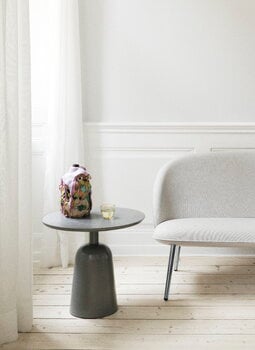Normann Copenhagen's Turn is an attractive, multifunctional side table designed by Simon Legald. The name Turn comes from the swivel structure of the table: by turning the tabletop, you can adjust the height of the table between 41,5 cm and 66,5 cm. The lower heights are great when using Turn as a coffee table or bedside table, and when turned higher, it makes an excellent side table in any room. The bell-shaped base is made of steel and the tabletop is ash veneer, and the monochrome coating gives the table a fresh, uniform look.
Turn side table 55 cm, grey
Normann Copenhagen
Description
Normann Copenhagen's Turn is an attractive, multifunctional side table designed by Simon Legald. The name Turn comes from the swivel structure of the table: by turning the tabletop, you can adjust the height of the table between 41,5 cm and 66,5 cm. The lower heights are great when using Turn as a coffee table or bedside table, and when turned higher, it makes an excellent side table in any room. The bell-shaped base is made of steel and the tabletop is ash veneer, and the monochrome coating gives the table a fresh, uniform look.
Product details (7)
- Colour
- Grey
- Height
- 41.5–66.5 cm
- Diameter
- 55 cm
- Table top material
- Lacquered ash veneer
- Frame material
- Powder-coated steel
- Weight
- 19.5 kg
- Care instructions
- Clean with damp cloth. Please be careful with sharp objects as they may cause scratches on the wooden tabletop.
- Product ID
Designer
Simon Legald (b. 1986) is a Danish designer and Head of Design at Normann Copenhagen. Graduating from the Royal Danish Academy of Fine Arts in 2012, Legald began his long and productive collaboration with Normann Copenhagen shortly after. His designs blend traditional craftsmanship with industrial techniques, focusing on modern simplicity and a precise balance between functionality and visual aesthetics. One of Legald's best-known works is the Form chair collection, which received the iF Design Award in 2016.
View all productsReviews (1)
5
Based on 1 reviews
-
T
Takayuki o
This is a terrific design! I would use it again in a proposal.
541 days ago
Sustainability
The Product Sustainability Framework, our criteria of sustainable design, helps you find the most sustainable products in our selection. Read below which sustainability criteria this product has met.
Working conditions & labour 7/9
-
Equal opportunities for all employees
-
Commitment to UN Global Compact, fair compensation for all employees
-
Corporate responsibility requirements defined and communicated for suppliers
-
Systematic work for improved inclusion and well-being in the workplace
-
Transparent supply chain
-
Suppliers' compliance to a code of conduct ensured
-
Compliance to the UN Guiding Principles on Business and Human Rights ensured in the supply chain
Eco-friendly production 6/9
-
Fair and resource-wise water-use in production
-
No incineration or landfilling of returned items
-
No use of endangered species as materials
-
No direct environmental emissions or waste (excl. GHGs) from production
-
Material-efficient and ecological packaging
-
No potentially harmful chemicals used in own production
Climate impact 4/8
-
Company's direct greenhouse gas emissions identified and commitment to reduction
-
Product's carbon impact identified and commitment to reduction
-
Guidance on energy- and eco-efficient use of the product
-
Contribution to climate initiatives beyond the brand’s direct operations
Sustainable materials 3/6
-
Sustainable and long-lasting material choices
-
No harmful or hazardous substances
-
Responsible raw material sourcing and production
Circular design 4/5
-
High aesthetic quality promoting long-term use of the product
-
Technically durable product design and material choices
-
Design for enduring life-long quality
-
Design and support for product maintenance, repair and upgradability

